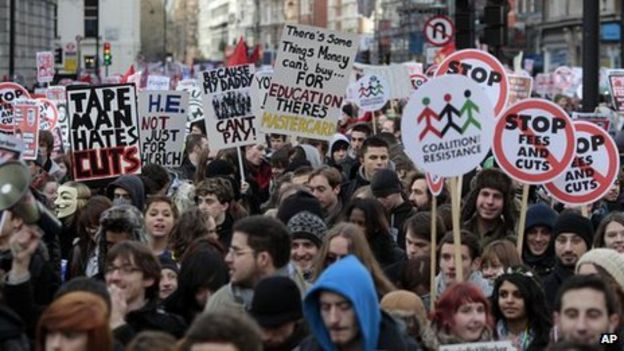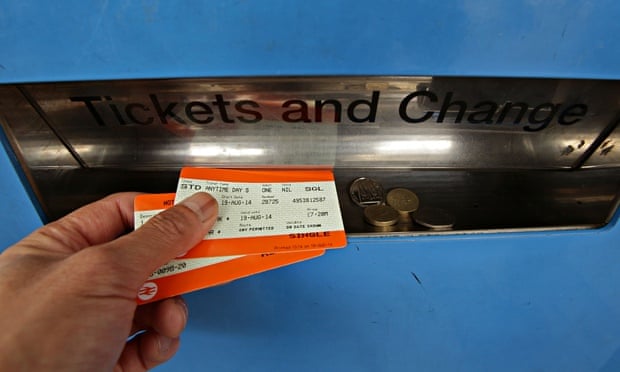Can't Buy
England is suffering a catastrophic housing crisis that has been more than a generation in the making. The number of new homes built each year is not nearly enough – to keep pace with demand we need around 245,000 homes per year in England but manage to build only around half of this. At current house building rates London will face a shortfall of over 700,000 homes by 2031. Rising house prices and rents are spiralling out of control as demand outstrips supply causing housing to become unaffordable for most people in normal jobs.
Only the wealthiest of the next generation will be able to buy a home if current trends continue, first-time buyers now have to pay, in real terms, ten times the deposit needed in the early 1980s.
- First-time buyers have an average income of £36,500, compared to the average salary for first-time buyers in the 1980s of £20,000.
- A first-time buyer has to borrow 3.4 times their annual income on average, compared to first time buyers in 1979 who needed to borrow just 1.7 times their income.
- Two thirds of first-time buyers receive financial help from parents – a figure that has doubled in five years.
 Real Wages Falling -
After three decades of strong growth, real wages peaked in 2009. The decline in real wages has now
been sustained for three consecutive years: 2010, 2011 and 2012. Average real hourly earnings
of UK employees are now back at roughly 2003 levels.
combined with
house prices
House Prices -
On average house prices in the UK have increased by 6.9% per year since 1980
The overall level of house building in the UK has declined since 1980,
with 140,880 houses built in financial year 2013/14 –
a fall of more than 44% from the 251,820 built in 1979/80.
rapidly
increasing
Real Wages Falling -
After three decades of strong growth, real wages peaked in 2009. The decline in real wages has now
been sustained for three consecutive years: 2010, 2011 and 2012. Average real hourly earnings
of UK employees are now back at roughly 2003 levels.
combined with
house prices
House Prices -
On average house prices in the UK have increased by 6.9% per year since 1980
The overall level of house building in the UK has declined since 1980,
with 140,880 houses built in financial year 2013/14 –
a fall of more than 44% from the 251,820 built in 1979/80.
rapidly
increasing
 House Prices v Salary -
In the years 1999 - 2013, the average salary has increased by 41%
while average house price has increased by 166%.
has caused a
reduction
First Time Buyers -
In the UK has subsequently had an impact on the age of home owners.
In 1991, 67% of the 25 to 34 age group were home owners.
By 2011/12, this had declined to 43%.
in the numbers of first time buyers.
House Prices v Salary -
In the years 1999 - 2013, the average salary has increased by 41%
while average house price has increased by 166%.
has caused a
reduction
First Time Buyers -
In the UK has subsequently had an impact on the age of home owners.
In 1991, 67% of the 25 to 34 age group were home owners.
By 2011/12, this had declined to 43%.
in the numbers of first time buyers.
For the majority of young people, and their parents, the housing issue must be causing unimaginable stress and demoralisation. The picture does look extremely bleak for young people trying to achieve what their parents or grandparents did, owning a secure home to raise a family.
Rent Traps
A rising number of people are now private renters and face unexpected rising costs. Over the last 15 years, the number of people who rent their home from a landlord has almost doubled to 8.5m people, and nearly a third of renters are families with children. On average, homeowners with a mortgage spend 20% of their income on paying that mortgage, however, private renters spend 40% of their income on rent. As younger people are significantly more likely to be affected by this imbalance this makes saving for a deposit harder. Young people - Since 2001, the proportion of homes rented privately has rocketed by 69 per cent. As more and more households are forced into private renting, increased demand will put greater pressure on the rental market. This will push up prices and drive down conditions – leaving renters even worse off. Younger people whose parents can’t help financially, can find themselves stuck living in their childhood bedrooms or paying high private rents that make it almost impossible to save for a deposit.
As well as impacting on day to-day living, high housing costs also increase the benefit bill. The number of people who claim housing benefit but are also in employment has doubled over the last six years. Increasingly, people’s earnings do not cover all living costs and so they need assistance Government assistance - The proportion of those claiming housing benefit who are in employment has doubled from 11% in November 2008 to 22.5% in February 2014. The total housing benefit bill in England – accounting for inflation – has risen by almost 150% from £8.7bn to £21.5bn in 21 years. from the Government and the taxpayer
According to Shelter, one in five families in England now rents privately, unlike renting in the social housing sector, most private rental properties are let out at market rates, meaning they are likely to be more expensive. They’re also likely to be let out on short term contracts of 6-12 months, with the landlord able to evict a tenant with only two month's notice.
- Private renters are disproportionately represented in those who come to Shelter for housing advice
- Over a third of private rented homes fail to meet the Decent Homes Standard
- In 1 in 4 areas, rents increased by an average of £300 a year in 2012
- There were more than 85,000 complaints about rogue landlords in 2012.
Children are living in
Victorian conditions,
Victorian conditions, -
Teaching union’s survey finds children are turning up to school sick because parents
cannot afford to take time off and sometimes without socks or a coat,
69% of teachers reported seeing children come to school hungry.
say teachers,
The findings give an indication of the impact of difficult financial circumstances on both
children
 Child poverty -
32% of those polled saying they had seen pupils who arrived or left school
halfway through a term because they were forced to leave their homes,
the same proportion reported teaching children who were living in
temporary accommodation and 22% said they knew of youngsters who
had lost their homes due to money pressures.
and
teachers.
Child poverty -
32% of those polled saying they had seen pupils who arrived or left school
halfway through a term because they were forced to leave their homes,
the same proportion reported teaching children who were living in
temporary accommodation and 22% said they knew of youngsters who
had lost their homes due to money pressures.
and
teachers.
 Teacher poverty -
The National Union of Teachers also found that young teachers are
having to share bedrooms and struggle to afford mortgages because of low pay.
Children need good, well-motivated teachers and the trust that this needs is being destroyed.
It’s worrying how desperate the situation is becoming and how ineffective the politicians
are when it’s left to the comedian Russell Brand to stand up against
this
gentrification
Teacher poverty -
The National Union of Teachers also found that young teachers are
having to share bedrooms and struggle to afford mortgages because of low pay.
Children need good, well-motivated teachers and the trust that this needs is being destroyed.
It’s worrying how desperate the situation is becoming and how ineffective the politicians
are when it’s left to the comedian Russell Brand to stand up against
this
gentrification
 Gentrification -
He and other campaigners brought it to media attention and were thankfully
successful in stopping US investors plans to evict families and more than double their rents.
process taking place in London.
Gentrification -
He and other campaigners brought it to media attention and were thankfully
successful in stopping US investors plans to evict families and more than double their rents.
process taking place in London.
Solutions
Solution 1 - Redistribute Empty Bedrooms
There are an estimated 15m
empty bedrooms
 Empty bedrooms -
"We have enough housing for every family to have a spare room,
but not for so many to have spare homes also.
In this sector,
around half of all bedrooms are not slept in each night"
in owner occupied properties in England.
Need to come up with a solution to fix this inefficiency.
One recent government scheme to free up some housing space was the bedroom tax,
the idea was to punish people in social housing who had spare rooms
so they would move to a house size which they are suited for.
The execution of the plan was ill thought out.
For example - A parent and child living in a 2 bedroom council house in Salford,
if the child was to ever move out the parent would have to pay an extra £518 a year
until they moved to a 1 bedroom house.
7,000 people in Salford are on the housing
waiting list
for a one-bedroom property,
the city has 8,000 one-bedroom homes – all occupied.
Empty bedrooms -
"We have enough housing for every family to have a spare room,
but not for so many to have spare homes also.
In this sector,
around half of all bedrooms are not slept in each night"
in owner occupied properties in England.
Need to come up with a solution to fix this inefficiency.
One recent government scheme to free up some housing space was the bedroom tax,
the idea was to punish people in social housing who had spare rooms
so they would move to a house size which they are suited for.
The execution of the plan was ill thought out.
For example - A parent and child living in a 2 bedroom council house in Salford,
if the child was to ever move out the parent would have to pay an extra £518 a year
until they moved to a 1 bedroom house.
7,000 people in Salford are on the housing
waiting list
for a one-bedroom property,
the city has 8,000 one-bedroom homes – all occupied.
A National Housing Federation
survey
 Bedroom Tax -
“The bedroom tax is trapping many people in homes they can no longer afford and where
they are struggling to pay their rents. It is unfair, badly designed, and must be repealed.”
of 51 housing associations which showed
that 51% of households affected by the bedroom tax were
unable to pay their rent between April and June.
We need better solutions to this bedroom efficiency problem. If you could get someone
like Elon Musk in to government, with his engineering mind which vastly reduced the cost of rockets,
designed efficient state of the art factories or created conceptions for futuristic hyperloops,
Musk has his mind set on travelling to Mars, is the bedroom distribution
more complex than that? If we had someone as ambitious and intelligent as
Musk working on our inefficient housing distribution problems
I have no doubt they would come up with a good solution.
Bedroom Tax -
“The bedroom tax is trapping many people in homes they can no longer afford and where
they are struggling to pay their rents. It is unfair, badly designed, and must be repealed.”
of 51 housing associations which showed
that 51% of households affected by the bedroom tax were
unable to pay their rent between April and June.
We need better solutions to this bedroom efficiency problem. If you could get someone
like Elon Musk in to government, with his engineering mind which vastly reduced the cost of rockets,
designed efficient state of the art factories or created conceptions for futuristic hyperloops,
Musk has his mind set on travelling to Mars, is the bedroom distribution
more complex than that? If we had someone as ambitious and intelligent as
Musk working on our inefficient housing distribution problems
I have no doubt they would come up with a good solution.
As home ownership becomes more unavailable we should try and move to a
housing market in other countries like in
Germany,
 German Rented Sector -
A staggering 60% of housing in Germany is private rented
(compared to about 17-18% in the UK). Renting is seen as a
normal alternative to home ownership, house-prices in Germany
have been declining for around 30 years now.
where people are more content to rent privately.
Renters in England
want
Renters wants -
Two thirds of renters would like to have the option of staying in their tenancy longer term
German Rented Sector -
A staggering 60% of housing in Germany is private rented
(compared to about 17-18% in the UK). Renting is seen as a
normal alternative to home ownership, house-prices in Germany
have been declining for around 30 years now.
where people are more content to rent privately.
Renters in England
want
Renters wants -
Two thirds of renters would like to have the option of staying in their tenancy longer term
- Four in five would like to know their rent cannot be increased above a certain level
- Two thirds would like to decorate their home without fear of what their landlord will say.
predictable rents, stability and a place to call home.
Option 1: Develop and promote the
Stable Rental Contract
Stable Rental Contract -
Give renters five years in their home during which they could not be evicted without a good reason
- Allow landlords to increase rents annually by a maximum of CPI during the five years
- Give renters the chance to decorate their home as long as they return it to neutral afterwards
- Allow renters to give two months notice to end the tenancy
Option 2: A stronger economic
imperative
Imperative -
Offer incentives so that if landlords offered Stable Rental Contracts,
they would avoid the certainty of additional income tax. In the long term,
they would have the prospect of a bigger capital gain. Changes in the rate
of tax have the advantage of being very transparent, which should increase
their incentive effect, and are relatively easy to administer.
for landlords
Option 3: Make longer tenancies the legal default,
short-term
Short-term Renting -
Landlords, institutional investors and lenders generally have a sound business
interest in tenancies that last for the longer term, as they benefit from
secure income streams that account for inflation, and avoid the costs and
management demands of high turnover.
renting is bad for landlords and renters
Renting should offer landlords and renters a balance of stability and
flexibility, as it does in other countries.
Government and the industry must work to bring the Stable Rental Contract
to market to improve private renting.
Solution 3 - Build, Build and BUILD!
For decades after World War Two Housing shortage - There was a shortage of housing in Britain after World War Two. Many houses had been destroyed by bombing. Large numbers of slums remained a problem. The birth rate had risen after the war had ended and families required homes. 1 4 new towns were planned in the 1940s and another 14 built in the 1960s. the UK used to build more than 300,000 new homes a year. In 2012-13, the UK hit a post-war of 135,500 homes. If the younger generations can never hope to buy then the government needs to replicate what they did after the war and buy up land and use it to create mass affordable social housing as well as encouraging more private builders to build rent regulated homes. The economic impact of housing associations is large, for every one pound invested in affordable housing, a further £1.42 is generated in the UK economy through indirect and induced multiplier impacts. Brown field sites need to be developed on and green field need to be considered. Green Belt - "The ideal solution would be to get rid of the green belt classification, if we were to just take the agricultural land within 10 minutes walk of a London metropolitan railway station you could still fit 1 millions houses, 1 million houses are all the houses we need for the next decade and it would still leave 97.5% to the greenbelt untouched."
Some technology is available to help speed up and reduce costs in construction.
The impact of automation is already being used on construction sites by
using
prefabricated
Prefabricated -
Whole modules of bathrooms and kitchens are being prefabricated in China and
actually lifted in as positioned, so they're pre-plumbed, pre-wired -
30 storeys go up in 15 days and they can only do that due to the offsite
prefabrication, which often involves a whole heap of different techniques
that haven't been seen in construction before.
modules. A company in China are using 3D printers to create housing.
They claim to be able to print 10 houses in 24 hours,
The company have also used their 3D printing technology to
build a five-storey apartment building.
Their
construction method
 Construction -
This process saves between 30 and 60 percent of construction waste, and can
decrease production times by between 50 and 70 percent,
and labour costs by between 50 and 80 percent. And, using recycled materials
in this way, the buildings decrease the need for quarried stone and other materials
is both environmentally forward and cost effective. In time, the company
hopes to use its technology on much larger scale constructions,
such as bridges and even skyscrapers. There are also new design and building tools such as
Microsoft's
Hololens
which can make the building houses more efficient.
Construction -
This process saves between 30 and 60 percent of construction waste, and can
decrease production times by between 50 and 70 percent,
and labour costs by between 50 and 80 percent. And, using recycled materials
in this way, the buildings decrease the need for quarried stone and other materials
is both environmentally forward and cost effective. In time, the company
hopes to use its technology on much larger scale constructions,
such as bridges and even skyscrapers. There are also new design and building tools such as
Microsoft's
Hololens
which can make the building houses more efficient.
England is a small crowded island with limited land, the population density of England was 413 people per sq km in 2013. England is not unique Population Density - Other developed countries have similar amounts of population per square km, Japan’s is 349, Belgium’s 370, Netherlands 498, South Korea is at 516 and at the extreme Macau which density is at 18,942 , have to look to other crowded countries and see how they are managed and learn from them.
Solution 4 - Tax
- Implement a Housing Tax Housing Tax - Need to properly tax housing, tax expensive housing and people with multiple homes, encourage people who are hoarding very large housing to give it up on expensive homes
-
Apply a
Capital Gains
 Capital Gains -
The tax incentives that landlords and property investors are given
to buy in Britain must urgently be reduced to stop the market overheating.
Tax on oversea buyers.
Capital Gains -
The tax incentives that landlords and property investors are given
to buy in Britain must urgently be reduced to stop the market overheating.
Tax on oversea buyers.
- Abolish Tax relief's Tax relief's - Landlords benefit from a complex and wide range of tax reliefs which encourage them to buy more properties and force prices up. If these incentives were phased out and new loopholes blocked, that would dampen demand from those wanting to make a quick buck from housing. Property prices in the capital are so high because landlords have become so desperate to buy there. for Landlords.
-
Tax
Land
 Tax Land -
160,000 families, 0.3% of the population, own 37 million acres, two thirds of Britain, 230 acres each. Just 1,252 of them own 57% of Scotland. They pay no land tax.
Too many people just sitting on land, not building on it, just allowing it to increase in price.
Tax Land -
160,000 families, 0.3% of the population, own 37 million acres, two thirds of Britain, 230 acres each. Just 1,252 of them own 57% of Scotland. They pay no land tax.
Too many people just sitting on land, not building on it, just allowing it to increase in price.
-
Reduce Wealth and Income
Inequality
 Inequality -
Prevent only the super wealthy being able to afford housing.
Reducing the share of total UK income going to the richest 1% to
Dutch or Danish levels & sharing the difference across the rest of the
population would be worth an extra £2,500 a year to every household
Inequality -
Prevent only the super wealthy being able to afford housing.
Reducing the share of total UK income going to the richest 1% to
Dutch or Danish levels & sharing the difference across the rest of the
population would be worth an extra £2,500 a year to every household
Taxpayers need to be aware, understand and be able to vote on what their money is going towards.
The Budget’s purpose and plans need to be more transparent and explained at local
and regional levels. People should be able to have democratic votes on budget
decisions and policies. Too often decisions are made that may not in the public's
best interest and are gone ahead without a public vote, e.g. £30bn Iraq and Afghanistan
Wars,
 War Cost's -
'Costly failures': Wars in Iraq and Afghanistan cost UK taxpayers £30bn
£30bn would pay for 1,464,000 more NHS nurses, 408,000 NHS consultants, 75% of the HS2 budget
£850bn Bank
Bailout,
Bailout -
National Audit Office said that we spent £850 billion on the bank crises in 2009.
The eventual cost to taxpayers will not be known for years
University fee’s
tripling
War Cost's -
'Costly failures': Wars in Iraq and Afghanistan cost UK taxpayers £30bn
£30bn would pay for 1,464,000 more NHS nurses, 408,000 NHS consultants, 75% of the HS2 budget
£850bn Bank
Bailout,
Bailout -
National Audit Office said that we spent £850 billion on the bank crises in 2009.
The eventual cost to taxpayers will not be known for years
University fee’s
tripling
 Student debt -
The decision to bring in a real, above-inflation interest rate on student loans means
that almost half (45%) of graduates will pay back more than they borrowed in real terms.
"We estimate that students will leave university with nearly £20,000 more debt,
on average, in 2014 prices (£44,035 under the new system compared with £24,754
under the old system).
in price, 120bn
Trident
Student debt -
The decision to bring in a real, above-inflation interest rate on student loans means
that almost half (45%) of graduates will pay back more than they borrowed in real terms.
"We estimate that students will leave university with nearly £20,000 more debt,
on average, in 2014 prices (£44,035 under the new system compared with £24,754
under the old system).
in price, 120bn
Trident
 Trident -
The decision to go ahead with Trident, the Nuclear Missile Defence project, which could cost £120bn,
the same amount of money could be used to build 2 million new social homes.
Trident -
The decision to go ahead with Trident, the Nuclear Missile Defence project, which could cost £120bn,
the same amount of money could be used to build 2 million new social homes.
This has caused a mass disillusionment in politics for many people. There is no real feeling of actual democracy, more like a dictatorship ruler or a feudal king making decisions. Have to do an electoral reform and get rid of first past the post voting because it is terrible The Government needs to adopt a better voting system such as Single Transferable Vote instead, this will get rid of tactical voting or the feeling that your vote is wasted on picking unlikely candidates. This is a much fairer and truer democratic way of voting.
Big business and corporations need to have less of an influence on politics. Just 76 people accounted for 41% of all individual and corporate donations Money in Politics - The first Sunday Times Political Rich List, published this weekend, found that 25 individuals had given more than £1 million each, accounting for 28% of £174.4 million donated in private and corporate cash between 2010 and 2014. made to the political parties and other political causes in Britain over the past five years By having a more democratised, more responsive, progressive government and more politically active population, decisions which affect the majority will be taken more seriously, the government will stop working just for the rich. This could allow more pressure on parliament to regulate private rent or to build more affordable housing.
Solution 6 - Improve Public Transport and Infrastructure
Better and more affordable public transport would make people’s commute
time to their jobs faster and cheaper. More people using public transport
would get more cars of the road, this could be reduced further by implementing
policies such as ridesharing incentives, congestion charges, safer cycling options,
park and ride schemes and staggered work times. These are just a few of
the many ways to try and decrease traffic and commute time.
Invest in improving and building more travel infrastructure like guided bus
routes or tram lines and
nationalise
 Railways -
The trains being privatised has already caused prices to rise faster than inflation
Many season ticket holders will find the increase to be greater than their annual pay rise.
trains isn't a solution. According to the group, many commuters will pay
20-25% more for their season tickets in 2014 than in 2010.
the railways to reduce train fares and
to encourage more adoption of public transport.
Railways -
The trains being privatised has already caused prices to rise faster than inflation
Many season ticket holders will find the increase to be greater than their annual pay rise.
trains isn't a solution. According to the group, many commuters will pay
20-25% more for their season tickets in 2014 than in 2010.
the railways to reduce train fares and
to encourage more adoption of public transport.
Install new technology such as London's fast contactless pay regionally so buses spend less time idle, introduce tracking technology, like on Uber cars, onto public transport so people can plan when they leave and spend less time waiting and wondering when the bus/tram/train will arrive. With better services and fast commute times this might make it more acceptable for people to live further from city centers which is generally cheaper and would allow for more housing to built further from the centre.
Hopefully self driving cars are not too far away which may ease the long commute times and traffic jams that some people experience. A study found a fleet of shared self-driving cars in Stockholm could reduce rush hour traffic volumes by 14 cars for every shared vehicle and the researchers also found the remaining automobile commuters would need only 20 percent of the metropolitan area's existing parking spaces. This means that some of the land that is used for parking in cities could one day be used to build more housing. Also people will no longer need car garages in homes, can convert this into a bedroom creating more housing space.
Conclusion
It wouldn't be naive to think that with 38% of Conservative MPs graduating from Oxbridge, they would have the brains to at least to slow down this housing crisis but once you realise that 25 percent of MPs are landlords compared to just 2 percent of the population you quickly realise why any of the main political parties are content to watch house prices rise. Recently, the Financial Times revealed that landlords increased their wealth by £434 billion in the last decade.
The biggest problem is that the people who have got houses want their house price to increase, they do not want to see them fall. This may be the biggest hurdle to overcome to see change. But if young people can’t buy and private rent continues on the trend of increasing Private Rent - In the three months to February 2015, average tenant incomes were 7.4% higher than the same period last year. The Institute for Fiscal Studies (IFS) found household incomes - allowing for inflation - are now 2% lower than they were five years ago. faster than wages, then for the next generation may find it impossible to house themselves.
Go to top
About
 Website created by
Website created by Nathan Leigh
Website tools created by Mary Lou.
Picture of my cat Kizzy on the right.
